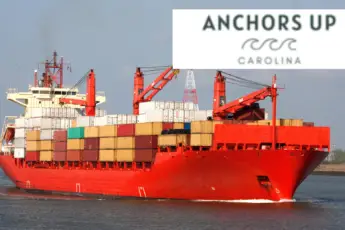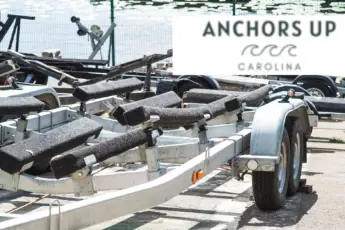Boating is a popular hobby for Georgia, South Carolina, and North Carolina, residents. The three stats offer ample waters between the coast and inland lakes and rivers. Furthermore, the winters are mild, allowing access to the water year-round. When it comes to docking and undocking, the task is challenging, but a boat hook device aids in the process. Here is what to know about a boat hook.
What Does A Boat Hook Do
When answering the question of the purpose of a boat hook, the answer is simple. The pole with a hook attached to the end allows the operator or passengers to grab the dock and pull the boat alongside.
In situations with strong currents or stiff winds, operators face the challenge of pulling the boat tight to the dock. Rather than coming alongside forcefully and causing dings and scratches, boat hooks allow the operator to remain at a distance while gently pulling the vessel dockside instead of driving it dockside.
Never risk falling overboard by grabbing the dock when a device is available to draw the boat close when a tool is available to maximize safety.
In addition to aiding docking, boat hooks are instrumental in retrieving items that have fallen overboard, including hats, bags, coolers, and more.
How Long Is A Boat Hook
When it comes to length, boat hooks come in varying sizes. The size ranges between four and twelve feet.
Remember, unless you own a yacht, a twelve-foot hook is incapable of being stowed inside of the boat. However, the storage solution is designing the pole telescopic. The boat hook extends and retracts with ease.
While retractable boat poles are available, most boaters do not require extensions. Instead of buying a twelve-foot rod, purchase a four-foot pole and place it near the helm. The convenient placement will allow you to grab and hook the dock with little to no effort.
When shopping for a boat pole, consider the challenges faced when bringing the vessel alongside the dock. When reach is a factor, purchase an extended hook; otherwise, save yourself the challenge of handling a heavy pole in docking situations.
One of the best boat hooks on the market is the rust-resistant SANLIKE telescoping pole. The hook is highly durable and will be capable of withstanding frequent use.
What Other Purposes Does A Boat Hook Serve
While the extended pole is highly beneficial when departing or returning to docks, the tool also assists with other tasks.
Retrieving Items Overboard
All too often, you are cruising along when you or a passenger’s hat suddenly becomes airborne. The cap splashes into the water behind the cruising vessel.
The first obstacle of retrieval is steering the boat properly to pull up alongside the hat instead of running it over or remaining at a far distance. Boat maneuvering must be slow and well thought out, but operators face challenges, including high winds or strong currents. The greater risk is a passenger falling overboard in an attempt to pull the ball cap from the water.
Rather than laying outstretched over the side, utilize a pole. The passenger or operator can remain confined within the boat while grasping the pole, extending it into the water, and hooking the hat for retrieval.
Now the task is done, allow the hat to dry, put it back atop your head, and carry on enjoying a day on the water.
Overboard Emergencies
Every boat operator fears a man overboard situation. Victims who fall overboard are at risk of drowning or being struck by oncoming vessels. The retrieval process must be swift, and a boat pole becomes critical in the rescue.
The first step before circling back is to toss a throwable type IV boat cushion to the victim. Type IV floats will provide buoyancy until the boat returns and retrieve the victim from the water.
Once the boat has circled back, the pole is instrumental in drawing the victim to the side of the vessel. The operator or a passenger must stand stable on the deck, reach with the stick, and pull the overboard victim alongside. Assist the victim into the boat and stow the boat pole.
Are You Ready To Add a Boat Hook To Your Vessel
Let’s face it, boat poles serve multiple purposes and, most importantly, rescue passengers who have fallen overboard. When buying a hook, consider purchasing a pole capable of floating. Unfortunately, the docking tool often sinks to the bottom of the lake, river, or coastal waterway as it slips or is ripped free from the user’s hands. Add a hook to your boat before heading out on the water. Remember, the instrument is easy to store and is critical in multiple situations.






